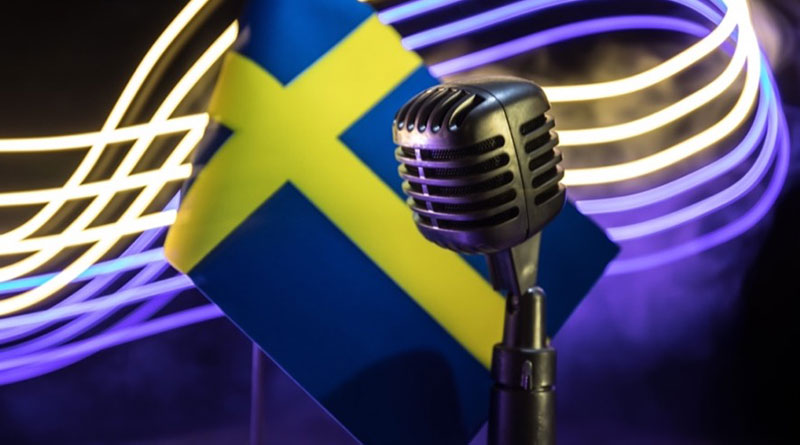Eurovision Song Contest Could Inject Upwards Of £72 Million Into UK Hospitality

The 2024 instalment of the Eurovision Song Contest could see more than £72 million spent in UK hospitality venues, according to a new survey* from music licensing company PPL PRS.
The survey of 2,000 Brits revealed that two-thirds (67%) of us will be tuning in to the contest this year, nearly three-quarters (72%) of whom will be supporting the United Kingdom’s entry Olly Alexander, of Years & Years fame.
More than one in 10 (11%) won’t be supporting any country but watching the show for enjoyment.
Nearly one in 12 (7%) plan to go out for the evening to celebrate Eurovision – the most popular destination for a Eurovision party is a pub or bar (4%), followed by a viewing at a cinema or theatre (2%).
Those visiting hospitality venues for events intend to splash the cash, however. Just 4% expect to spend less than £20 on Eurovision night, while the most popular budget for the evening is around £50 (25%). One in five (21%) plan to spend £20, while nearly half (47%) of respondents have budgeted upwards of £50. Almost one in 12 (7%), however, have set aside more than £100 to spend at a Eurovision party.
Analysis of respondents’ spending intentions by PPL PRS reveals that the night is set to see more than £72 million pumped into the UK’s nightlife economy as a result of the Eurovision; the biggest spenders of the night alone could account for a spend injection of more than £21 million.
Recent years have seen Eurovision parties gain traction in hospitality venues – but many now opt to watch at home or a friend’s house; PPL PRS’ survey reveals that four in five (79%) Eurovision fans will stay home to watch the contest, while one in seven (13%) plan to visit a friend’s house for the evening.
Cost and comfort drive the trend for avoiding a night on the town; more than half (51%) prefer to stay in for the comfort of being in their own or a friend’s home, while for almost one in two (48%), it comes down to staying in being cheaper than going out to an event.
One in 10 (90%) Gen Z and Millennials are heading out for Eurovision parties this year – with an average intended spend of £42 and £44 respectively. Similarly, those in the Gen X bracket are likely to spend an average of £43, but 96% plan to watch Eurovision at home or at a friend’s house.
Despite just 2% of Boomers intending to watch the contest at a public viewing party, purchase intent is much higher; the average spend intent for the generation sits higher than any other at an average of £53 per head.
More than one in 10 (89%) Londoners are set to spend the evening in hospitality venues for Eurovision with the second-largest average spend intent at £51 per person – with the same to be said for the North East (88%), but with a much lower spend intent of just £35.
Only Welsh Eurovision fans plan to spend any more than Londoners, with an average of £51, but just 3% of people in Wales intend on spending the evening at a public event. Following Wales, with just one in 20 (5%) planning to attend a public Eurovision party, are those in Northern Ireland and the South East.
The lowest expected spenders on Eurovision night, along with the North East, are those in Scotland, the West Midlands and the South East, budgeting £37, £36 and £33 respectively on average.
Marianne Rizkallah, music therapist for PPL PRS, explains:
“Listening to music with other people, especially in response to a live social event such as Eurovision, brings groups together and improves mental wellbeing. Part of it is the music’s properties itself – many contemporary Eurovision tracks are upbeat, in a major key and involve a four-to-the-floor drum beat that sounds anthemic and encourages you to wave your hands in the air and sing along. This gearing towards joining in through how the songs are put together places music as a symbol of the collective experience that’s being shared while watching Eurovision. The music itself makes you feel good, and being around other people who are hearing the same stimulus and cues as you also makes you feel good.
“For businesses, using upbeat music that symbolises having a good time with your friends means the groups of people out in venues are more likely to spend their money there, with drinks in bars contributing to the feel-good nature of the night.”
